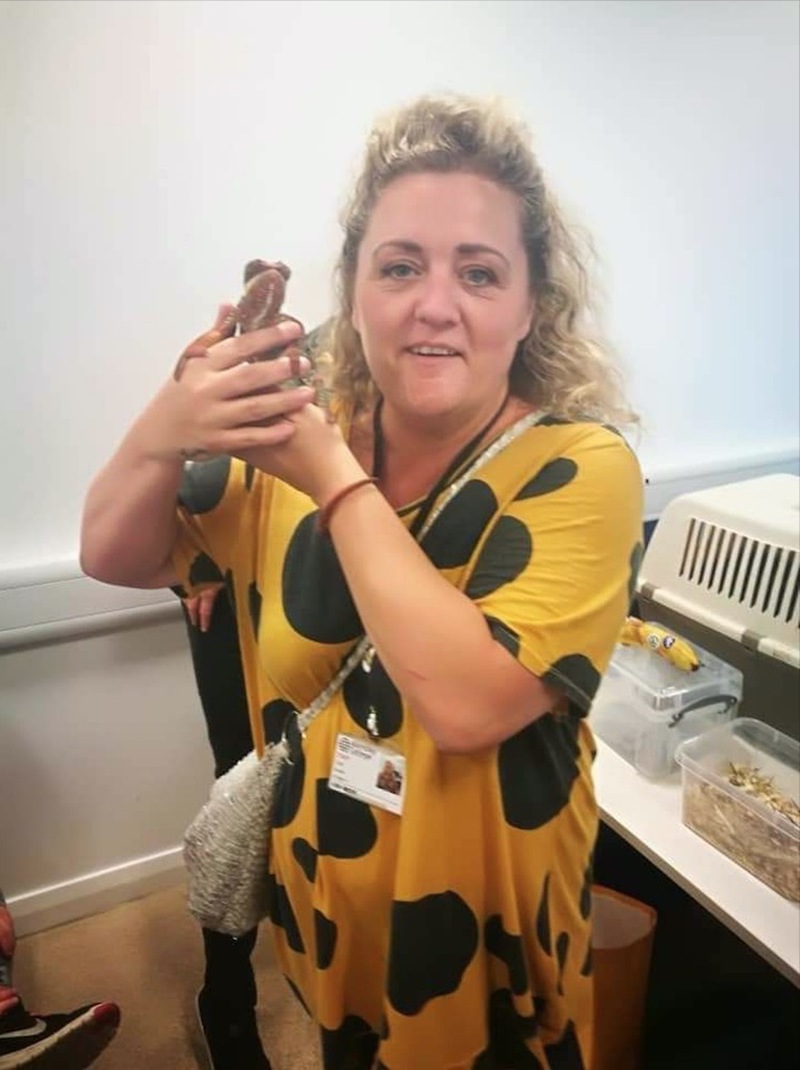NEGLECT was not found to be a factor in the death of a much-loved, ‘larger than life’ teaching assistant who suffered a blood clot following surgery, an inquest was told.
Vicki Austin, 52, of Upper Sheffield Road, contacted emergency services on August 11 complaining of upper right rib and abdomen pain, and became unresponsive on her way to hospital before dying there due to a pulmonary thromboembolism.
A much-loved staff member at Barnsley College who also worked with Mencap for two decades, crowds gathered at her funeral and listened outside through loudspeakers.
She was first admitted to Barnsley Hospital on August 5, 2018 with a history of sudden abdominal pain, and a CT scan revealed a closed loop bowel obstruction.
She was taken to theatre for a laparotomy - an incision into the abdomen - the following day, but the operation ‘floored’ her when it didn’t go to plan, an inquest at Sheffield’s Medico Legal Centre was told on Wednesday.
The following January she alerted doctors to a ‘bulge’ on her midriff, diagnosed as divarication of the rectus abdominus - separation of the abdominal muscles.
And after more than a year and a number of appointments she was put on a waiting list for a further operation in October, 2020.
She’d hoped the operation would help her recover her lost confidence, assistant coroner Tanyka Rawden - reading out a statement by family - added, but ‘this sadly was never to be’.
Vicki underwent surgery last July ‘as one of the first patients to receive non-emergency surgery following Covid-19 restrictions’.
Despite being prioritised due to her worsening condition, there was a significant delay in her receiving abdominal wall reconstruction surgery, the coroner noted, due to the pandemic.
But this was not put down as a factor in her death, deemed to be of natural causes.
Following surgery, Vicki received compression stockings and a higher-than-normal daily dose of anti-clotting medicine dalteparin after it was found she had a family history of the condition Factor V Leiden - which increases chance of clots - although wasn’t diagnosed with it herself.
Vicki contracted an infection on August 2 and received antibiotics.
Doctors did not carry out a new risk assessment for thromboembolism - when a clot blocks a blood vessel - in the following week, due to Vicki being ‘mobile and showing clinical signs of improvement from the infection’.
Neglect - noted by Ms Rawden as ‘not a primary cause of death’ - was brought up by the family’s representative at the inquest, but the coroner did not find it to contribute.
“She was unable to treat herself and she had placed herself in the care of those who could treat her,” said Ms Rawden, noting a three-stage test for neglect involving dependancy, gross failure in care, and whether this contributed to death.
She said the key issue was whether Vicki should’ve continued on anti-clotting medication once she’d left hospital, and whether she should’ve been re-admitted in the days before her death.
“I think the decision around anticoagulation was properly assessed, her family history was taken into account, she was mobile when she was discharged, and she was given dalteparin for three days longer than the guidelines say she should’ve had it.
“The test for neglect fails at the second hurdle, and therefore I don’t then need to go on to consider whether there’s a causal connection or not.
“A conclusion of natural causes does not equate to a finding that there has been no errors.
“The only slight concern I had in this case, was although I found that ultimately I don’t think it would’ve made a difference to Vicki if she’d have gone home with any anticoagulation medication, it is possible that it may make a difference to somebody else.”
An ongoing investigation found Vicki’s to be one of two from 51 cases who developed thrombosis having gone home without anticoagulation treatment.
Ms Rawden noted she was ‘encouraged to hear’ that work was ongoing and wanted to hear the outcome of the review, which she would share with Vicki’s family.


























